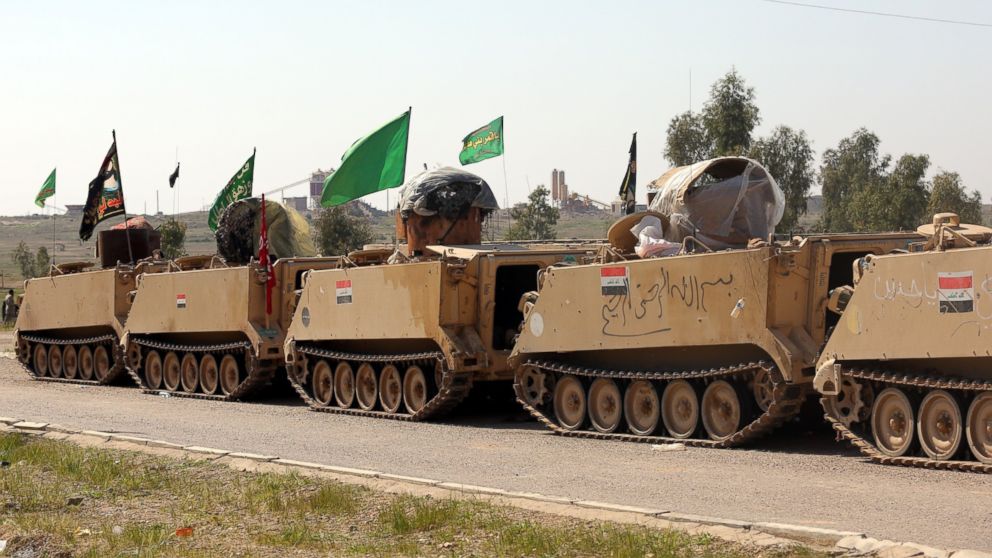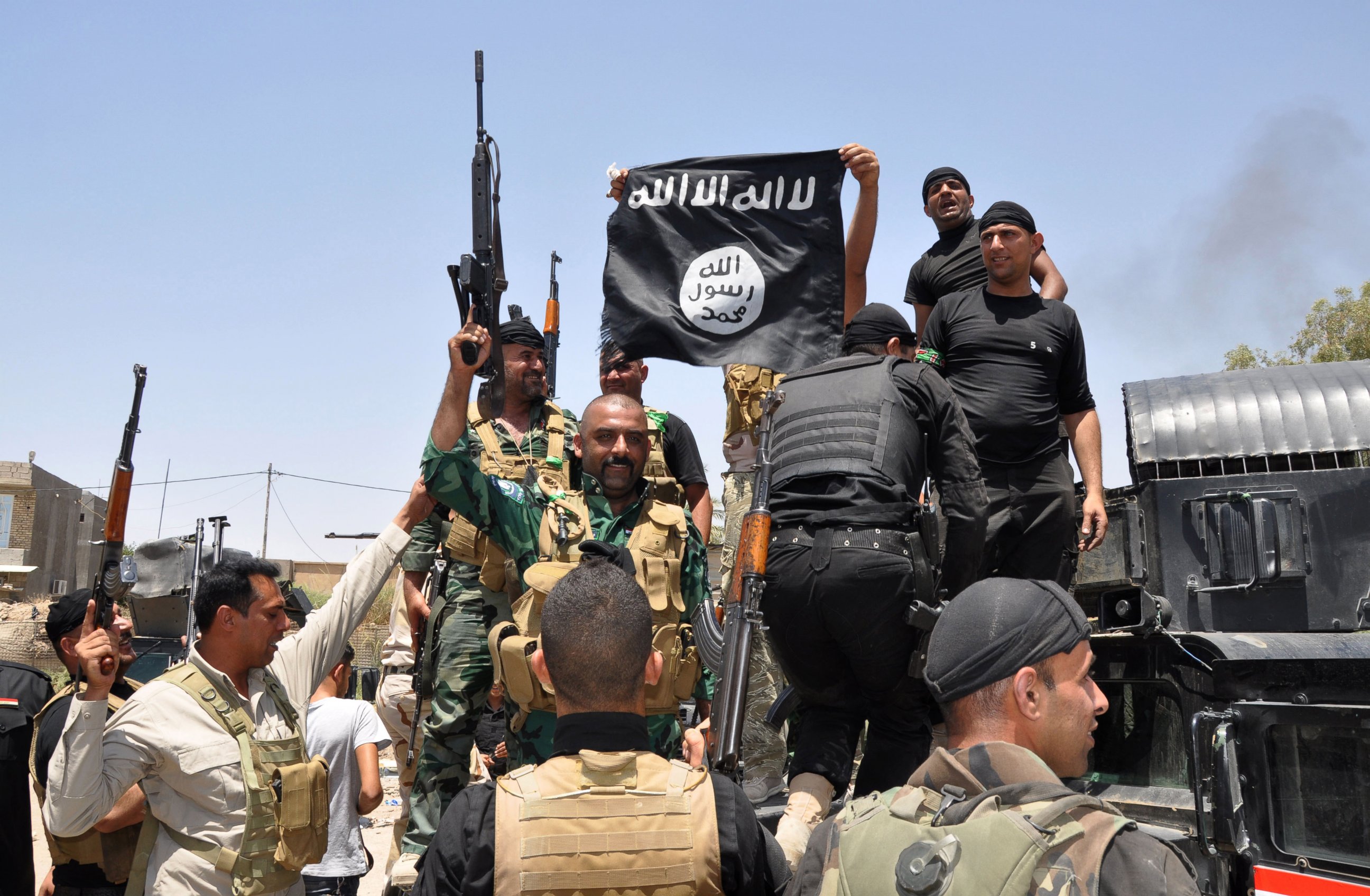ISIS Must Be Stopped for 'Our Own Sake,' Says Iraqi Prime Minister Haider al-Abadi
Haider al-Abadi says Tikrit offensive making progress.
— -- Iraqi Prime Minister Haider al-Abadi fears that "no army in the region" can stand in the way of ISIS “if they are allowed to continue,” telling ABC’s “This Week” in an exclusive interview that the terror group must be stopped for “our own sake.”
Speaking from Baghdad, al-Abadi called ISIS "a very, very dangerous organization." The terror group has millions of Iraqi citizens living in areas under its control.
"If they are not stopped on time, I can assure you, no army in the region can stand in their own way,” he told ABC News' Martha Raddatz. "We have to stop them for our own sake."
Earlier this week, the Iraqi government launched its largest military offensive yet against ISIS in an attempt to retake Tikrit, which was seized by the group last summer.
Al-Abadi said Iraqi troops are “ahead of planning” in their push towards the city and preparing for an urban fight. While headed for meetings in Iraq this week, Gen. Martin Dempsey, the chairman of the Joint Chiefs of Staff, expressed optimism that the Iraqi force of 23,000 military and Shiite militia fighters will defeat the several hundred ISIS fighters inside the city.

There is no U.S. involvement in the Tikrit offensive and U.S. officials have said the Iraqis have not requested airstrikes to support the operation.
Instead, the offensive has been helped by Iranian planning and Iranian-backed Shiite militias. Al-Abadi did not say if Iranian Quds Force General Qasem Soleimani was playing a major role in the operation.
Al-Abadi acknowledged that Soleimani “comes and goes” to Iraq, but that he does not stay long.
"He just comes for a visit and he goes," he said.
Al-Abadi added that he had not personally seen Soleimani during a visit earlier this week to Samarra in Saladin Province, close to the fighting.
On the Front Lines in the Fight Against ISIS
Al-Abadi said it was “not entirely true” that American military commanders did not know beforehand that the Iraqi military was launching the Tikrit offensive, noting that the U.S. and Iraqi military coordinate plans at a Baghdad Joint Operations Center.
“I know probably some are surprised and unhappy in - in Washington - because they haven't taken a full control over these operations,” he said. “We have to take charge of what we are doing because it's Iraqi lives which has been sacrificed.”
Al-Abadi said Iran is helping Iraq "in a lot of ways," including providing military advisers for the offensive on Tikrit, adding that Iran too feels threatened by ISIS. He said that overall the number of Iranian advisers inside Iraq “is not more than 50 or 60.”
Al-Abadi claimed the U.S. does not see the Iranian help as a problem as the Iraqis have “the right to use all capabilities available to defend our own forces, our own land.”
The U.S. currently has 2,600 military personnel in Iraq to advise and train Iraq’s military, but al-Abadi did not expect them to someday be needed in combat operations.
“It doesn't help whether I wish or not. I don't think that's going to happen,” he said. “This administration and I understand the U.S. public are not eager - or they don't want to - send their own sons and troops outside [the] U.S.”

The Iraqi prime minister said the country's military plans to push ISIS out of other areas of Iraq, including Anbar Province, before trying to retake Iraq’s second largest city, Mosul.
Though he expects an Iraqi offensive on Mosul to take place in early summer "just to repay the people," al-Abadi acknowledged it could be delayed. He was unable to describe how Iraqis live in areas controlled by ISIS, only saying it was "very rough."
"That's why we are very eager to liberate these areas as soon as possible," al-Abadi said.
But al-Abadi also wants an offensive to take place when Iraq’s military has received enough training and has access to supply routes and air cover.
“Our timetable is not only time-linked, it's factual-linked,” he said. “We have to achieve certain things on the ground before we can take back Mosul.”
Al-Abadi believes that taking Mosul from ISIS could deal a fatal blow to the terror group and its symbolic claims that it has established a caliphate.
“This is the center of their state," he said. "We would have killed their own ambition to establish that state on the other countries, as well, in the region."




